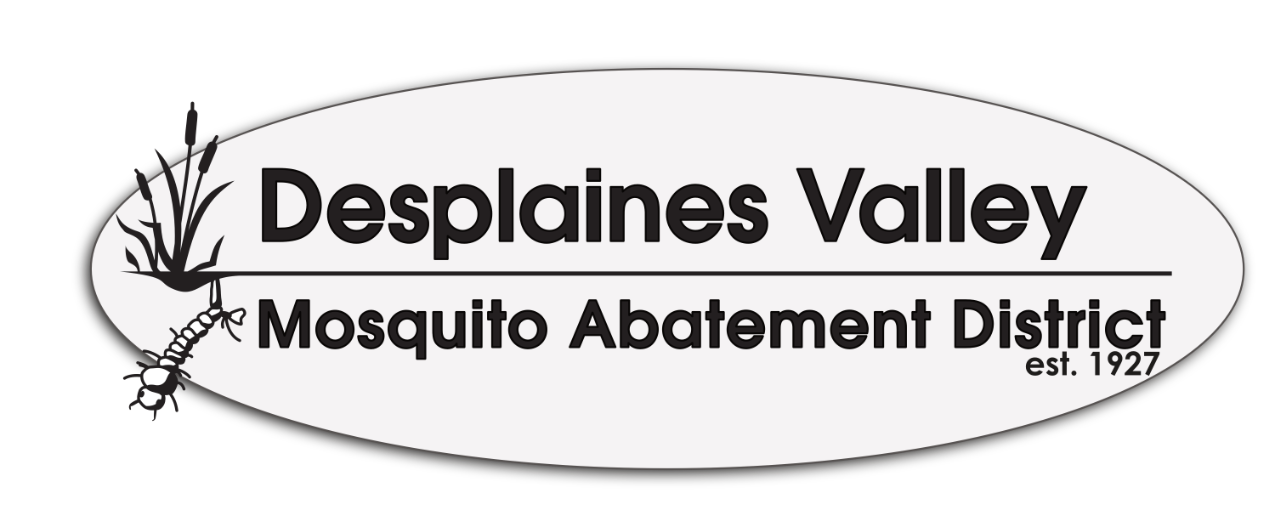Adult Mosquito Control
The Desplaines Valley Mosquito Abatement District does not conduct routine
adult mosquito control operations. Adult mosquito control is the least effective approach to
mosquito control with only localized, temporary benefits. However, adult mosquito control is
the only tool available to use against an adult mosquito population involved in disease
transmission. The District will only implement residential adult mosquito control
operations as a contingency measure for disease vector mosquitoes when there is significant
risk of mosquito-borne disease transmission.
Residential Adult Mosquito Control
The District considers guidelines established by the Illinois Department of Public Health (IDPH)
in their publication entitled "IDPH Surveillance and Response Procedures for Mosquito-borne
Arbovirus Emergencies" and the Center for Disease Control in consideration of residential
adult mosquito control operations. Operations will be focused against specific vector
populations of Culex pipiens and related species in an effort to minimize or break a viral
transmission cycle.
Specific criteria considered to initiate residential adult mosquito control are as follows:
Primary Triggers
a) Positive Mosquito Pools - Confirmation of viral activity within the adult mosquito
population. Our District operates a network of gravid traps to collect adult mosquito samples
for subsequent testing of West Nile Virus(WNV). These traps are
highly selective in collecting Culex spp. mosquitoes having had a blood meal and potential
exposure to WNV. In-house testing using RAMP gives same day results.
b) Surrounding Area Data - Viral activity in areas surrounding the district, including data from
other Mosquito Abatement Districts, Cook County Department of Public Health, and DuPage
County Health Department.
c) Dead Birds - Numbers of dead birds and the time of year they are found. Subsequent
confirmation by the IDPH of WNV within dead birds.
d) Time of Season - The point in any given mosquito season when initial positive bird and
mosquito pool samples are confirmed. Positive samples early in the season set the stage for a
developed viral amplification/transmission cycle, whereas initial positive samples late in the
season would minimize this cycle.
e) Equine Cases - Confirmed equine (horse) cases are an indicator that a spillover from the
bird population has occurred. Viral activity has amplified and escalated to a level where this
occurs.
f) Human Cases - Confirmed human cases or fatalities are the ultimate indicator that a
spillover from the bird population has occurred, and is likely to continue.
Secondary Triggers
a) Vector Population Level - A larger than normal vector population level poses a greater risk
for spillover disease transmission to humans. But a low vector population does not imply that
disease transmission will be minimal or disappear. Under the circumstances of a high infection
rate, spillover transmission will occur even with a low vector population.
b) Weather: Rain & Temperature - Rainfall can directly affect vector population levels. Water
is required for all mosquito development, with rainfall influencing the number of potential
breeding sources. Temperature on the other hand can affect both vector population levels
and the viral amplification/transmission cycle. Above normal temperatures also can increase
the viral transmission rate.
Insecticide used for adult mosquito control
The insecticide used is Duet, a dual-action synthetic pyrethroid manufactured by
Clarke Mosquito Control Products, Inc.
Adult Control only is conducted after dusk, when the vector mosquitoes are most active and pollinators are inactive so that nontarget effects are minimized.
